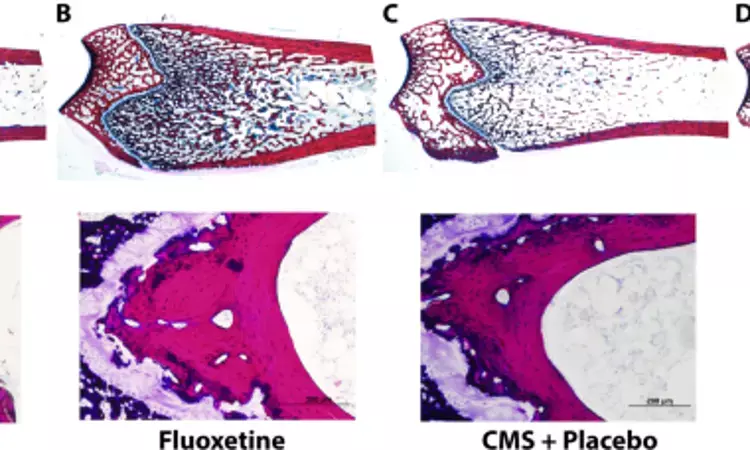- Home
- Medical news & Guidelines
- Anesthesiology
- Cardiology and CTVS
- Critical Care
- Dentistry
- Dermatology
- Diabetes and Endocrinology
- ENT
- Gastroenterology
- Medicine
- Nephrology
- Neurology
- Obstretics-Gynaecology
- Oncology
- Ophthalmology
- Orthopaedics
- Pediatrics-Neonatology
- Psychiatry
- Pulmonology
- Radiology
- Surgery
- Urology
- Laboratory Medicine
- Diet
- Nursing
- Paramedical
- Physiotherapy
- Health news
- Fact Check
- Bone Health Fact Check
- Brain Health Fact Check
- Cancer Related Fact Check
- Child Care Fact Check
- Dental and oral health fact check
- Diabetes and metabolic health fact check
- Diet and Nutrition Fact Check
- Eye and ENT Care Fact Check
- Fitness fact check
- Gut health fact check
- Heart health fact check
- Kidney health fact check
- Medical education fact check
- Men's health fact check
- Respiratory fact check
- Skin and hair care fact check
- Vaccine and Immunization fact check
- Women's health fact check
- AYUSH
- State News
- Andaman and Nicobar Islands
- Andhra Pradesh
- Arunachal Pradesh
- Assam
- Bihar
- Chandigarh
- Chattisgarh
- Dadra and Nagar Haveli
- Daman and Diu
- Delhi
- Goa
- Gujarat
- Haryana
- Himachal Pradesh
- Jammu & Kashmir
- Jharkhand
- Karnataka
- Kerala
- Ladakh
- Lakshadweep
- Madhya Pradesh
- Maharashtra
- Manipur
- Meghalaya
- Mizoram
- Nagaland
- Odisha
- Puducherry
- Punjab
- Rajasthan
- Sikkim
- Tamil Nadu
- Telangana
- Tripura
- Uttar Pradesh
- Uttrakhand
- West Bengal
- Medical Education
- Industry
Depression and fluoxetine may negatively impact BMD and implant osseointegration independently: Study

Depression and fluoxetine negatively impact bone mineral density and implant osseointegration independently suggests a study published in the Clinical Oral Implants Research.
The aim of this study was to explore the effect of depression and selective serotonin reuptake inhibitors on implant osseointegration and bone healing. Forty-eight 6- to 8-week-old SPF Sprague–Dawley male rats were randomly divided into four groups: the Control group, the Fluoxetine group, the Depression group and the De&Flu group.
The rats in the Depression group and the De&Flu group were subjected to a depression modelling process, and the rats in the Control group and the Fluoxetine group were raised normally. Then, a titanium implant was placed in the right tibia of each rat. In the Fluoxetine group and De&Flu group, fluoxetine was injected subcutaneously daily, while subcutaneously injecting physiological saline in the Control group and Depression group. Collecting serum from the rats used for ELISA. The surgical area was cut for microcomputed tomography and histology observation. Results: After 12 weeks, bone mineral density was lower in the De&Flu group than in the Control group, Depression group and Fluoxetine group. Bone mineral density was also lower in the Depression group and the Fluoxetine group than in the Control group. The percentage of bone–implant contact (BIC%) in De&Flu rats was lower than in the Control, Depression and Fluoxetine groups.
The BIC% in the Depression group and the Fluoxetine group was lower than in the Control group. Depression and fluoxetine negatively affect bone density and implant osseointegration independently, and this damaging effect is exacerbated when both factors are present. The mechanism may be related to the dysregulation of the hypothalamic–pituitary–adrenal axis and inflammation in the body.
Reference:
Xiaowen, Y., Zhu, J., Gong, M., Meng, G., Tan, R., Zhang, Y., & Chen, Z. (2024). Effect of depression and the antidepressant fluoxetine on osseointegration—A pre-clinical in vivo experimental study. Clinical Oral Implants Research, 00, 1–12. https://doi.org/10.1111/clr.14323
Dr. Shravani Dali has completed her BDS from Pravara institute of medical sciences, loni. Following which she extensively worked in the healthcare sector for 2+ years. She has been actively involved in writing blogs in field of health and wellness. Currently she is pursuing her Masters of public health-health administration from Tata institute of social sciences. She can be contacted at editorial@medicaldialogues.in.
Dr Kamal Kant Kohli-MBBS, DTCD- a chest specialist with more than 30 years of practice and a flair for writing clinical articles, Dr Kamal Kant Kohli joined Medical Dialogues as a Chief Editor of Medical News. Besides writing articles, as an editor, he proofreads and verifies all the medical content published on Medical Dialogues including those coming from journals, studies,medical conferences,guidelines etc. Email: drkohli@medicaldialogues.in. Contact no. 011-43720751


